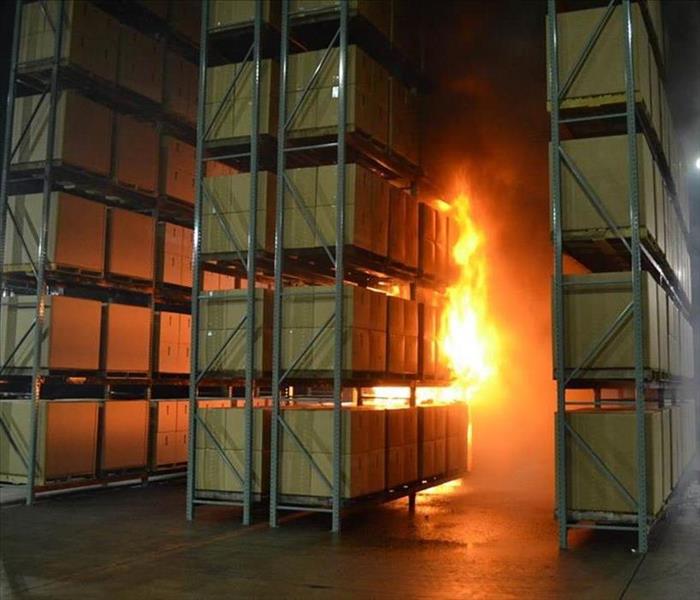3 Ways to Reduce Your Commercial Fire Risk
5/19/2022 (Permalink)
Most people have never had to operate a fire extinguisher or flee a burning building, yet according to the U.S. Fire Administration, each year over one million structure fires cause damage to property. If you want to reduce the risk of fire damage for your business, follow these 3 simple steps:
Fire Extinguishers
The benefit of well-placed fire extinguishers can’t be overstated. The following facts about commercial fires illustrate importance:
- A high percentage of commercial fires don’t require an emergency response because an extinguisher was available
- Most business fires happen when workers are present, and a small fire can be handled with a good fire extinguisher
- Cleaning up a little bit of foam from the extinguisher is far preferable to the damage that can occur while waiting for emergency responders to arrive
Knowing where to store your extinguishers and how to use them are crucial factors in their effectiveness. It is essential your employees know where your extinguishers are located and their proper operation. Your local fire remediation specialist or fire department can help evaluate your site and recommend the number and placement of fire extinguishers.
Smoke Alarms
Commercial building codes require smoke alarms because they are your best chance of detecting smoke and fire in the early stages. A working smoke alarm and a good fire extinguisher can be a life saving combination. Consider including smoke alarms on your facility maintenance schedule. Backup batteries should be replaced every six to nine months, and the alarm exterior should be vacuumed occasionally to remove dust and lint.
Fire Sprinklers
Most regional building codes require fire sprinklers in commercial buildings. They may save your facility if a fire starts when no one is in the building. If no one is there to hear the alarms, the sprinklers can completely extinguish a fire or keep it at bay until emergency services arrive.
A small kitchen fire in your lunchroom doesn’t have a chance against the fire prevention triad: a working smoke alarm system, nearby fire extinguishers, and fire sprinklers. They can be the difference between a little smoke damage and costly commercial property damage.





 24/7 Emergency Service
24/7 Emergency Service
